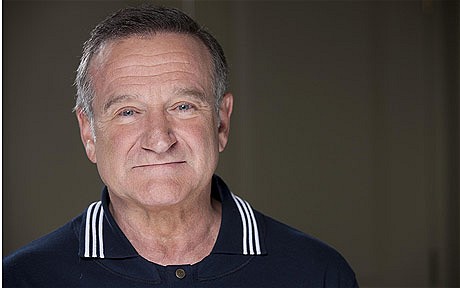
(8-18-2014) Robin Williams’ suicide touched a wide swath and judging from the number of emails that I received, those of us who deal with mental illnesses felt especially compelled to comment. But while Williams’ death saddened me, it was a less noticed news item last week that alarmed me.
Federal prosecutors announced they were considering filing new charges against would-be presidential assassin John Hinckley Jr. after a Virginia medical examiner ruled that former White House press Secretary James Brady’s recent death was a homicide.
Hinckley shot Brady while trying to kill President Ronald Reagan in 1981 outside a Washington D.C. hotel. However, Brady didn’t die until earlier this month while living in a Virginia retirement home. He was 73 years old.
For the past 33 years, Hinckley has been confined mostly in a locked mental ward at St. Elizabeths Hospital where he was sent in 1982 after jurors found him not guilty by reason of insanity. In December, a judge ruled that Hinckley, now 59, could spend 17 days a month at his mother’s gated Virginia community where he must be under supervision. He is required to wear a GPS device when he is not supervised. His lawyers have pushed for 24 days of supervised visits and eventually hope he can return to society unsupervised.
Why would federal prosecutors put Hinckley on trial for murder, especially since most legal experts say it would be impossible to win such a case and have questioned what would be gained if they did?
It could be argued prosecutors are being diligent because they suspect Hinckley is still dangerous. A more cynical view is their announcement was a publicity stunt to assure the public they are being “tough” on crime.
For those of us with family members who have run afoul of the law while in the midst of a psychotic episode, there is a more frightening explanation. The prosecutors’ actions reflect an underlying disbelief in our society that mental health treatment works, that individuals can recover, and when they do, they deserve to be welcomed back into society.
More than 360,000 Americans, who have been diagnosed with serious mental disorders, are currently locked up in jails and prisons, often for minor crimes such as trespassing. Studies show defendants with known mental health issues spend three times longer in our jails than others charged with identical offenses. Many find it difficult to obtain housing and employment after they are released because of lingering suspicion and stigma. Often they hide their medical diagnosis from their friends. Would you want your son or daughter marrying someone who had been diagnosed with a mental illness? Now substitute the word “a heart condition” for mental illness. Would you feel the same anxiety even though both are considered medical problems?
Robin Williams was certainly never charged with a violent act. His mental troubles and addictions caused him to turn inward and harm himself. Hinckley’s disorders caused him to act out and tragically hurt others. There is a difference and society must react accordingly. But we must also realize there is a nexus. Both deserve our understanding and compassion.
The public’s reaction to the loss of Robin Williams shows the U.S.A.’s great sympathy for those suffering with mental disorders. The federal prosecutors’ announcement shows we still have far to go.



